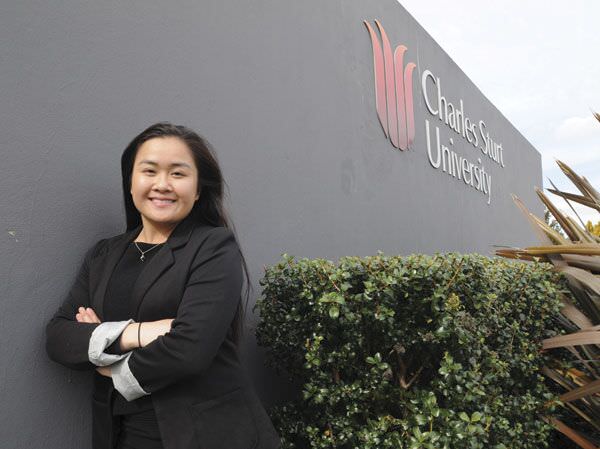Wendy Cohen, Country Education Foundation CEO, says more needs to be done to support the education, training and job opportunities for rural and regional youth.
She says CEF is working to help close the city-country gap and is looking forward to Minster for Education Simon Birmingham’s Independent Review into Rural, Regional and Remote Education that will be published later this year.
I think the overwhelming financial cost of participation in higher education or training of choice is the most pressing challenge facing rural and regional students. Not only because of the immediate obstacle it creates but also because, over time, it really does lead to the formation of almost intractable social and cultural barriers, across multiple generations. That basically sends the message; you live in country Australia therefore you can not expect to have options. You live in country Australia so you are not allowed to harbor ambitions that break down cultural, geographic or financial boundaries.
That becomes the norm and this can be an enormously difficult mindset to challenge and change.
Education is the answer to so many things, so many problems and ultimately behind so many achievements.
It’s the Country Education Foundation’s (CEF) fundamental belief that students in the country are as entitled to be as ambitious, as successful and as fulfilled as anyone else; a) because country youth have as much to offer as their city counterparts in all areas of professional endeavor, and; b) when you even out the playing field and make education and training equally accessible to all young Australians you ensure the very best outcomes for the whole country.
In the end it just makes sense that any young person in Australia can have a dream which is not impeded by their postcode.
We know the education participation gaps between country and city kids is currently more than 7 per cent, representing thousands of young people who are currently missing out. This cannot be good for the economic or social development of Australia. Nor is it particularly good for young people in the country with aspirations who do not feel they have the support, tangible or otherwise, to achieve their life goals. It’s hard enough as is it to make the often daunting decision to leave home to study. Perhaps you’re the first in your family to make the leap? Perhaps you need to move to another state, without any peer or family support, to take part in your chosen area of study? Perhaps you are a female wanting to train in a male-dominated trade? All these factors alone could be enough to deter someone. Imagine then if you just couldn’t afford to pay for this life-changing decision? What then?
The participation gap is so significant, its affects so profound that it has, in part, prompted the federal government to announce the upcoming Independent Review into Rural, Regional and Remote Education (IRRRRE) later this year. This gap in participation rates has been identified as one of the key issues the IRRRRE needs to address.
Anecdotally we know that many of our past grant recipients may not have been able to afford to study were it not for the financial support CEF provides. Even a small grant of $1000 can help purchase text books or tools of the trade, pay the rent for a month or enable a few return trips to a city campus. This can make all the difference to taking the first step to applying to university or TAFE, or, in many cases mean the student can focus on study and not have to seek a part time job to pay the bills.
Many of our grant recipients have also reported that - over and above the financial leg up CEF provides - it was our faith in them, our affirmation of their goals, that helped them build the self-belief necessary to go after their dreams. This type of support can often be priceless and can make the difference between making a difficult decision or not.
You ask, how can this problem be solved or minimised?
Put simply, CEF needs to help level the playing field.
We do this currently by working with our 43 volunteer, community-based committees to get the all-important grants and funds directly to the students who need them the most. This year alone, through the combined efforts of the national office, hard work of our local committees, and our education partners’ support, we have provided more than $1 million in grants and scholarships to 475 students across the country.
This financial support is supplemented by our online resources, the University Survival Guide and our CEF Scholarships Guide.
We can measure our success, to some extent, by looking at how our completion rates compare to national averages too. Our grant recipients are completing university studies at a rate of 87 per cent, compared to just 67 per cent nationally, and those in the vocational education and training (VET) sector courses have a completion rate of 90 per cent which is significantly higher than the national average of well under 50 per cent.
One example of how we are closing the gap and ensuring we help create as many opportunities as possible for young people in rural and regional Australia is Nap Holmes.

Nap is the first in her family to go to university, she is studying physiotherapy at a campus 12 hours from her home in Great Lakes in northern NSW. She knew her family wasn’t going to be able to help her as much as they would have liked and she said CEF has been invaluable for the support – both financial and otherwise.
“Without CEF it would be very difficult for people like me to go to university. It’s hard enough to get into uni but being able to afford living expenses, travel, textbook and relocation costs is the really stressful stuff. My CEF grant relieves these pressures.”
In time, as CEF grows and with the weight of our impressive and growing alumni, like Nap, behind us, and with research and data that can support our platforms and demonstrate our impact, we can advocate for real improvement to the inclusion in higher education of rural and regional students.
For almost 25 years CEF has worked hard to close the participation gap and enable more than 4000 individuals to realise their education goals and life aspirations. We are really excited for the future. As CEF develops and with the support of partnerships like that with the Origin Foundation, we know that we have many more thousands of students to support, and hopefully help them make life-changing decisions. These very clever, dedicated and inspirational young people deserve every opportunity available to them – wherever that might take them.


